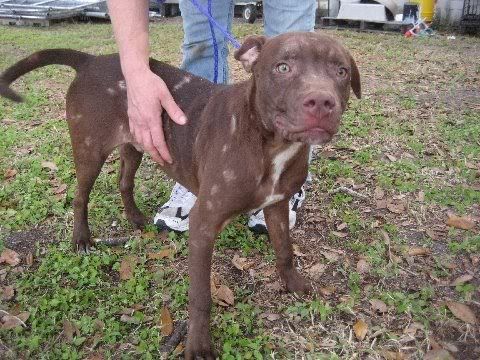No, the hardest part of fostering, by far, is choosing which dog to take. Which, out of the tens or hundreds or thousands of dogs on the brink of death, do you save?
I think that in many instances it is actually harder to make this choice as a foster home than as an adopter, largely because once you're involved in rescue, you have to learn and consider the calculus of "adoptability."
When you're picking a dog as a foster case, you are balancing three potentially conflicting considerations: (1) what you can accommodate in your own life and home; (2) what you can reasonably expect to place in a certain timeframe; and (3) who needs it most desperately.
A dog is "more adoptable" if it is small, non-shedding or low-shedding, young, cute, light- or uniquely-colored, purebred or close to it, sweet-tempered but not too shy, in good health, and reasonably well-trained. These are the dogs with the highest demand among the adopting public. Rescue groups compete over them because they're easy to place and therefore subsidize the cost of the harder cases. A litter of healthy poodle puppies or Bichon mixes is never in serious danger in any shelter system that has rescue contacts and/or Internet exposure.
 |
However, the further you get from that checklist, the more a dog moves toward the dreaded "less adoptable" category. Bigger dogs are harder to handle, may be prohibited in condos and apartments that have size limits on permitted animals, and can be intimidating to people who prefer smaller dogs. Their pool of potential homes is therefore smaller (maybe much smaller, depending where you live).
Most adopters want puppies -- the younger and cuter, the better. Adults are at a significant disadvantage in the adoption lottery, partly because they're not as universally adorable and partly because there is a misconception in many quarters that a puppy is a blank slate, but a grown dog can't be taught new tricks. (This is COMPLETELY untrue. Puppies are not entirely malleable; their personalities are shaped by genetics and prenatal stresses even before they're born. Adolescent and young adult dogs learn the fastest, in my experience, which is one reason they make my favorite fosters. It only takes a month to make a biddable year-old dog look awesome.) I've said it before and I'll say it again: adult dogs are often the very best ready-made companions. But the adopting public hasn't come around to that view, as a whole, and so puppies continue to get snapped up first.
And if a dog is not so cute, or is scarred or gray-muzzled or just plain enough to get lost in a sea of similarly colored mutts, it's not likely to catch adopters' eyes as quickly (or at all). If it's sick or injured or lacks manners, it's going to cost more money to foster, because the rescue group has to pay for veterinary treatment and/or remedial training. If the dog is a mutt -- or, worse yet, an obvious scion of a breed that has a negative public image (Rottweiler, Doberman, and of course, above all, the long-suffering pit bull) -- fewer people will value him, and some may shy away altogether.
These are the dogs that break our hearts. They are good dogs. They are wonderful dogs. But there are so many of them, and so few foster spaces, and choosing always means calculating: do I take the dog that I can place the fastest, allowing myself to pull another death-row dog as soon as possible and subsidizing the costs of care for longer-term mutts? Or do I take the one who is most likely to be overlooked, recognizing that he may be overlooked in foster care as well?
Whatever you decide, ultimately you do decide. And one dog is saved. And you walk away, knowing that all those other hopeful faces will have to go home with someone else, or not at all.

Isn't that the truth. :[
ReplyDelete